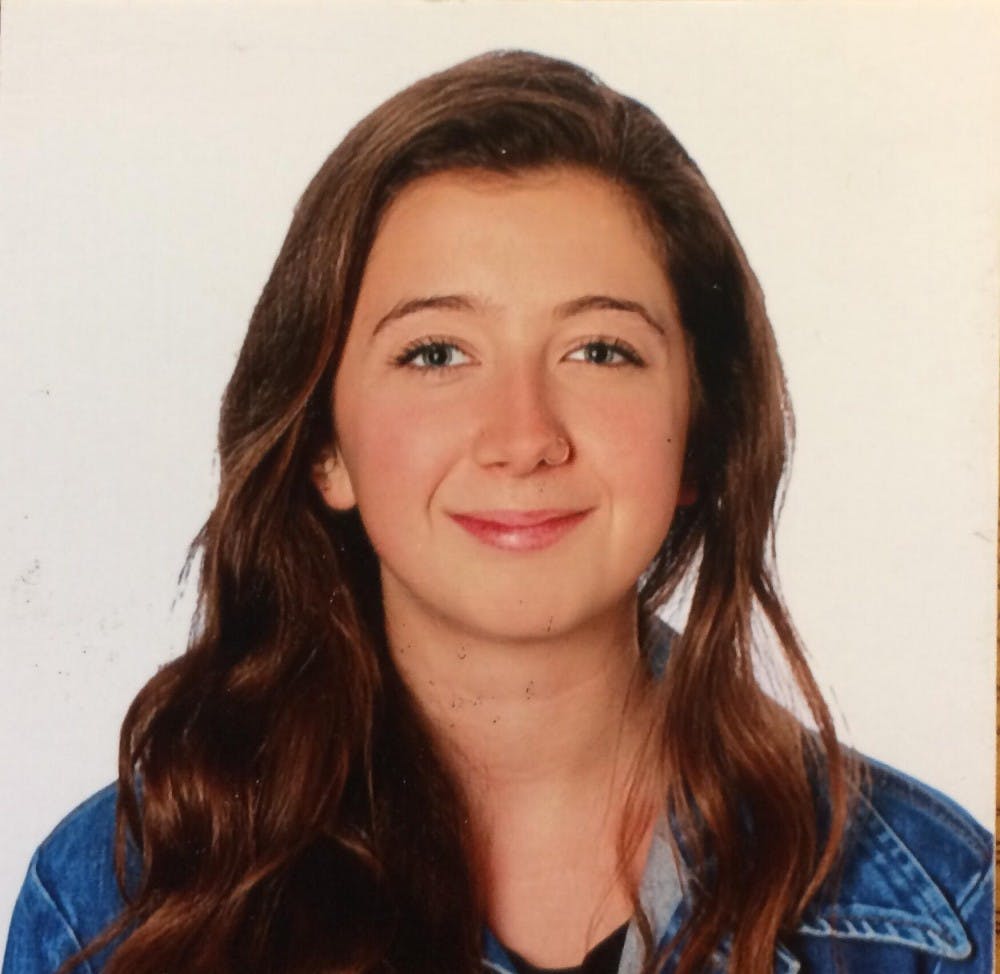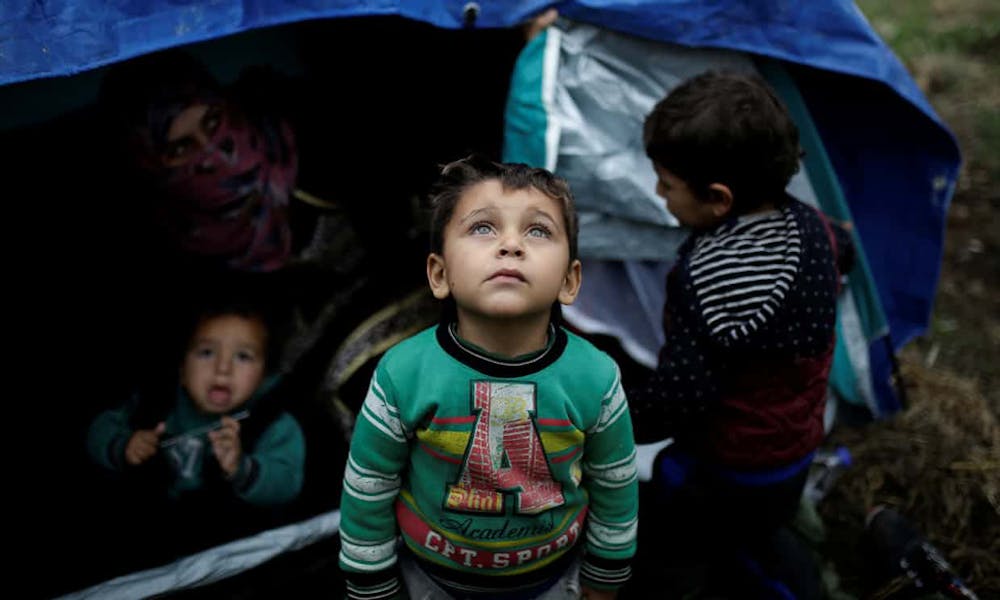By Abigail Roberts | Echo

I stood over a smoldering tent, gazing into the eyes of a family who once again had lost everything.
"Everything, everything was in the tent," an Afghan refugee said. "We had just used our bank card to buy our first new possessions here: a hot water pot, a cooking pan, spices, all gone. Why did I leave my country to just find greater conflict here in Moria?"
A military detention center turned refugee camp, Moria in Lesvos, Greece was built in 2015 to house a maximum of 3,000 refugees. Last week, a Euro Relief coworker shared with me, "(Moria) Camp is now over 9,000. We've had 615 arrivals on Lesvos in three days."
Each morning we flashed our IDs at the Greek police officers, glanced toward the new arrivals tent, assessing how much work lay ahead of us that day. The organization we worked for, Euro Relief, houses all new arrivals.
Shouldering their few belongings and clutching their identification documents tightly in hand, over 100 refugees shuffled into the New Arrivals Tent every day. The New Arrivals Tent is the refugees' first home in Europe. They landed ashore a few hours before, after their 5 kilometers raft journey from Turkey.
"This is the video where a Greek coast guard began towing our boat," a young Syrian refugee woman from Damascus said. "At first, we were afraid it was a Turkish boat pulling us back to Turkey. But when we saw it was Greek, we began to celebrate."
In the video, she and her friends and family are playing loud music, dancing and laughing.
I wondered if they would be celebrating if they knew the conditions that awaited them after they disembarked.
It's 8:30 a.m. and I carefully step between a dozen families sprawled out on the ground. Sewage runs from the two portable toilets. Blankets and tarps hang above the chain link fence, providing little shelter from the weekly rain showers.
Every morning Euro Relief examines the list of new arrivals and assess which cases are viable for housing within the camp. Single women, unaccompanied minors and those with severe health issues face waitlisting for re-housing in safer areas. The waitlist numbers more than 300 names. Some wait over five months for re-settlement.
We scan the list for single adult males, families and couples with both identification papers stamped.
"Mahmud Abbas," I call out, reading from my sheet. "Mahmud Abbas."
I walk the narrow space between the tent and fence where families camp, squeezed together for lack of space.
"Mahmud Abbas," I call again.
Behind the New Arrivals Tent, a hand waves. My partner and I crouch down beneath a makeshift tarp. Abbas is a Kurd from Iraq. He, his wife and children arrived last Saturday, waiting in the drizzling rain to be housed for two days. Abbas walks with a limp, the result of untreated back injuries. Pain is etched into the lines on his face.
"Papers?" I ask in broken Farsi. "New house, you come with me."
Relieved to finally receive housing, they smile and quickly gather together their UNHCR issued blue backpacks, blankets and water bottles.
As we exit the New Arrivals Tent and trudge up a sharp incline toward Euro Relief's offices, the mother peppers me with questions in broken Arabic.
"Will we be housed in a caravan? A big tent? Will we be near the food line? Will we be close to doctors? Will we be near other Kurds?"
The question she really wants to ask is, "Will she and her family be safe?"
The honest answer I don't want to give is, "Probably not."
On a weekly basis fights break out within the camp. People groups holding centuries of animosity against each other live side by side in tents. The camp is filled with restless young men, suffering from PTSD and dealing with trauma from wars within their own nations.
Tuesday, July 10, we walked into what looked like a warzone. I will never forget it.
Tents burned to the ground, structures broken down, house structures raided, clothing, personal belongings, food and trash thrown everywhere, tents slashed, graffiti sprayed across a large tarp.
A fight between the Afghans and Arabs had broken out during the night.
I knew each and every family in each of those tents we had set up just days before. I knew their stories, I knew their trauma. They didn't deserve this.
"I just want to protect my baby," an Afghan man shared. "I can fight; I can stand my ground, but this little guy," motioning to the 2-year-old boy strapped to his chest giggling and kicking, "It is for him I am so afraid."
As of Sept. 10, Greece has been given 30 days to clean up Moria or face closure.
According to The Guardian, Moria was set up to fail. Policy makers believed refugees would tell their friends and family back home not to come if the conditions they encountered were terrible.
Yet the reality is refugees are still coming. Maintaining this devastating reality cannot be worth the human rights cost.




